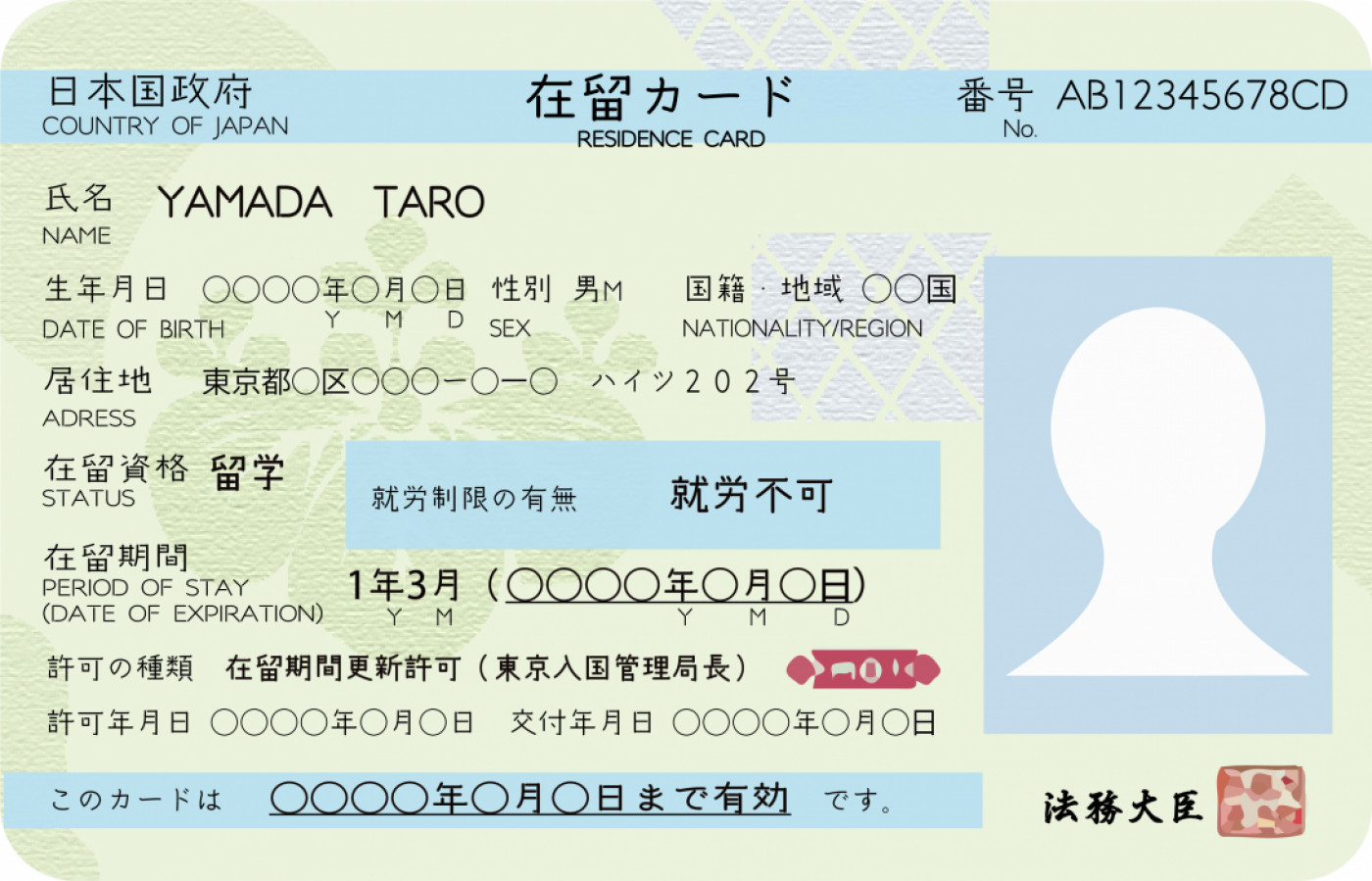Foreign nationals who want to work in Japan must acquire a status of residence or visa type that permits working to earn a salary. There are 19 types of work visas in Japan, with different requirements and staying conditions.
In this article, we introduce to you the 19 available types of working visas in Japan including their eligibility conditions and allowed periods of stay. We also introduce other types of status of residence (visas) in Japan whose holders are allowed to work.
First Published: 2022/06/20
Updated: 2024/04/29
Table of Contents
- Number of Foreign Residents in Japan [End of 2023]
- By Nationality / Country of Origin
- By Status of Residence (Visa Type) in Japan
- By Prefecture
- 19 Types of Working Visa in Japan
- Permission to Work for Non-Work Visas
- Is a Visa the same as a Status of Residence?
- Find a Job in Japan with WeXpats
 Are you having any issues with job-hunting in Japan?
Are you having any issues with job-hunting in Japan?
Number of Foreign Residents in Japan [End of 2023]

According to the Immigration Services Agency (ISA), as of the end of 2023, there were a total of 3,410,992 foreign residents in Japan, which is 10.9%, or 335,779 people, more than last year.
By Nationality / Country of Origin
In terms of “nationality / country of origin”, there are a total of 195 countries from which foreign residents in Japan came from. The top 10 countries, where most foreign residents came from, are the same as last year. Excluding foreign residents from South Korea, the remaining top 10 countries have increased in number.
- China: 821,838 people
- Vietnam: 565,026 people
- South Korea: 410,156 people
- The Philippines: 322,046 people
- Brazil: 211,840 people
- Nepal: 176,336 people
- Indonesia: 149,101 people
- Myanmar: 86,546 people
- Taiwan: 64,663 people
- United States of America: 63,408
By Status of Residence (Visa) in Japan
In terms of “status of residence (visa type)”, the most popular is Permanent Residency, followed by Technical Intern, and then Engineer / Specialist in Humanities / International Services.
- Permanent Residency: 891,569 people
- Technical Intern: 404,556 people
- Engineer / Humanities: 362, 346 people
- Study Abroad (International Student): 340,883 people
- Special Permanent Residency: 281,218 people
By Prefecture
In terms of “prefecture”, the majority of foreign residents are living in Tokyo. A total of 663,362 foreign residents reside in Tokyo, which makes for 19.4% of the total. The top 5 prefectures with the most number of foreign residents are:
- Tokyo Metropolis: 663,362 people
- Aichi Prefecture: 310,845 people
- Osaka Prefecture: 301,490 people
- Kanagawa Prefecture: 267,523 people
- Saitama Prefecture: 234,698 people
※ Immigration Services Agency, “令和5年末現在における在留外国人数について” [2024.03.22]
Writer's Pick
19 Types of Working Visa in Japan

Japan provides close to 30 types of status of residence (visa). Each type of visa has its own eligibility conditions, requirements for application, and conditions to stay. Apart from Work Visas (就労ビザ, Shuurou Biza), of which there are 19 types and specifically for authorisation to work in Japan, there are other types of non-work related status of residence (visa), such as:
- “Study Abroad (留学, Ryuugaku)” for international students to study abroad in Japan
- “Cultural Activities (文化活動, Bunka Katsudou)” for engaging in culture and arts unique to Japan for academic studies, research, or training purposes
- “Short-Term Stay (短期滞在, Tankitaizai)” for sightseeing (tourists), visiting relatives, business trips, attending conference meetings, etc.
- “Permanent Resident (永住者, Eijyuusha)” for permanent residents
and more.
In this article, we will introduce the 19 types of available Work Visas (就労ビザ, Shuurou Biza) there are in Japan, and their respective eligible occupations and available period of stay.
Engineer (技術, gijutsu) / Specialist in Humanities (人文知識, jinbun chishiki) / International Services (国際業務, kokusai gyoumu)
Also known as “Engineer / Humanities Visa” for short in English and abbreviated to “技人国” in Japanese, is the most commonly applied for status of residence (visa) in Japan due to its wide scope of coverage. According to the ISA, as at the end of 2023, there were 362,346 holders of this visa in Japan, 50,385 more than the previous year.
Eligible Occupations:
① Engineer: IT engineer, chemical engineer, electrical engineer, automobile engineer, architect, civil engineer, etc.
② Specialist in Humanities: accountant (not CPA/CTPA), legal (not attorney), consultant, sales and marketing, public relations, human resources (recruitment), etc.
③ International Services: translator / interpreter, localiser, foreign language teacher (eikaiwa, foreign language school), foreign-style fashion or interior design,
Period of Stay:
5 years, 3 years, 1 year, 3 months
Highly Skilled Professional (高度専門職, koudosenmonshoku)
Started in May 2012, the Highly Skilled Professionals visa was introduced to draw talent into the country. It is a point-based system with points awarded based on numerous factors including educational & academic background, research achievements, annual income, Japanese language ability, awards, and more.
The greatest benefit of the Highly Skilled Professional visa is the fast track to getting permanent resident status - from 10 years to 3 years or 1 year depending on your points.
Period of Stay:
1st Type: 5 years
2nd Type: Indefinite
Business Manager (経営・管理, keiei / kanri)
For foreign nationals who are interested in doing business in Japan, this visa allows those eligible to be involved in business operations in Japan or even to set-up a business. However, it is quite difficult to satisfy the many criteria for this visa.
Eligible Occupations:
CEO, Company President, Company Director, Manager, etc.
Period of Stay:
5 years, 3 years, 1 year, 4 months, 3 months

Intra-Company Transfer (企業内転勤, kigyounai tenkin)
This visa is specifically for transferring employee(s) to a Japanese branch company. As such, it encompasses a wide range of occupations.
Period of Stay:
5 years, 3 years, 1 year, 3 months
Journalism (報道, Houdou)
This visa is for journalists and relevant news-related personnel who have been dispatched by a foreign news corporation.
Eligible Occupations:
Newspaper journalist, magazine journalist, news cameraman, newscaster, news photographer, etc.
Period of Stay:
5 years, 3 years, 1 year, 3 months
Legal (法律, houritsu) / Accounting (会計業務, kaikei-gyoumu)
For legally qualified practitioners of law and accounting work.
Eligible Occupations:
① Legal: attorney (lawyer), judicial scrivener
② Accounting: certified public accountant, certified public tax accountant
Period of Stay:
5 years, 3 years, 1 year, 3 months
Professor (教授, kyouju)
This visa is aimed at learned professors that will be taking up positions at universities. The ultimate goal is to improve academic research and performance.
Eligible Occupations:
University Professor, Lecturers, Assistant Professor, etc.
Period of Stay:
5 years, 3 years, 1 year, 3 months
Instructor (教育, kyouiku)
Not to be confused with “Professor” above, or Foreign Language Teacher in “Engineer / Specialist in Humanities / International Services” above, this visa is for teachers in non-tertiary education.
Eligible Occupations:
Teachers (including foreign language teachers) at elementary school, junior high school, high school, international school, special needs school, etc.
Period of Stay:
5 years, 3 years, 1 year, 3 months

Researcher (研究, kenkyuu)
This visa is for foreign nationals coming to Japan to conduct research for remuneration.
Eligible Occupations:
Researcher at research facilities, government organizations, companies, etc.
Period of Stay:
5 years, 3 years, 1 year, 3 months
Medical (医療, iryou)
This visa is applicable only to medical specialists with the relevant medical qualification.
Eligible Occupations:
Medical doctor, surgeon, physiotherapist, psychologist, dentist, nurse, etc.
Period of Stay:
5 years, 3 years, 1 year, 3 months
Nursing Care (介護, kaigo)
Not to be confused with “nurse” in “Medical” above, this visa is relatively new having been introduced in 2016 and implemented in 2017 to address the growing need for care workers in Japan. “Nursing Care” is one of the specific industries for “Specified Skilled Worker (特定技能, Tokutei Ginou)” visa. Unlike the other 11 specific industries for SSW, “Nursing Care” has its own work visa, and therefore the industry is not eligible for SSW (ii).
Eligible for Certified Care Workers only.
Period of Stay:
5 years, 3 years, 1 year, 3 months
Art (芸術, geijutsu)
This visa is targeted at people whose work involves creating works of art.
Eligible Occupations:
Photographer, composer, artist, sculptor, lyricist, etc.
Period of Stay:
5 years, 3 years, 1 year, 3 months

Entertainment (興行, kougyou)
Not to be confused with “Artist” above, these occupations are more performance-based like acting and modeling. The available duration is shorter than other types of visas with a maximum of 3 years and the shortest duration of 15 days. This visa is commonly used by singers on world tours, models here for fashion week, athletes to compete in a sports match, actors for film or drama shooting, etc.
Eligible Occupations:
Dancer, singer, actor, model, musician, athlete, etc.
Period of Stay:
3 years, 1 year, 6 months, 3 months, 15 days
Religious Activities (宗教, shuukyou)
For accepting religious workers coming to Japan to work in religious facilities like missionaries at churches, temples, shrines, etc.
Eligible Occupations:
Missionaries, monks, priests, bishops, etc.
Period of Stay:
5 years, 3 years, 1 year, 3 months
Diplomacy (外交, Gaikou)
This visa is specifically for diplomats on official diplomatic or consular missions on behalf of their countries and other important people who enjoy the same privileges as diplomats do. Diplomats enjoy special privileges like diplomatic immunity. You may have noticed cars with blue license plates; these are diplomat vehicles.
Eligible Occupations:
Diplomat, Consulate Member, Head of State, Minister, etc. and their family members
Period of Stay:
Length of mission
Official / Government Business (公用, kouyou)
Easily confused with “Diplomacy” visa, this type of visa is more for support staff.
Eligible Occupations:
Diplomat Accompanying Staff, Embassy Staff, Consulate Staff, International Organization Japan Office Staff, etc. and their family members
Period of Stay:
5 years, 3 years, 1 year, 3 months, 30 days, 15 days
Skilled Labour (技能, ginou)
This visa is for skilled workers from foreign countries. Applicable skills should be unique to the country or difficult to obtain in Japan.
Eligible Occupations:
Foreign cuisine chef, pilot, craftsman, foreign product technician/repairman, foreign design architecture / civil engineer, sommelier, animal trainer, sports trainer, etc.
Period of Stay:
5 years, 3 years, 1 year, 3 months

Specified Skilled Worker (特定技能, tokutei ginou)
The “Specified Skilled Worker (SSW) or 特定技能 (Tokutei Ginou)” status of residence (visa type) was introduced in the hopes of drawing skilled workers to Japan. The “Specified Skilled Worker” status of residence (visa type) is divided into Types 1 and 2. At the moment, there are 12 industries with various occupations that are eligible for SSW.
Eligible Industries:
Nursing Care, Building Cleaning Management, Machine Parts and Tooling / Industrial Machinery / Electric / Electronic Information, Construction, Shipbuilding and Ship Machinery, Automobile Repair and Maintenance, Aviation, Accommodation, Agriculture, Fishery and Aquaculture, Manufacture of Food and Beverages, Food Service.
[Update] In March 2024, it was announced by cabinet decision that an additional 4 industries will be added - Automobile Transportation, Railway, Lumber, Forestry.
Period of Stay:
- SSW (i): 1 year, 6 months, 4 months (renewable up to maximum 5 years total)
- SSW (ii): 3 years, 1 year, 6 months (unlimited renewal)
Technical Intern Training (技能実習 ginoujishuu)
This visa is specifically for interns enrolled in Japan’s Technical Intern Training Programme. The programme functions to teach participants from developing countries technical knowledge and skills from Japanese corporations and bring such knowledge and skills back home to help build a better future for their home countries. In return, Japan gains access to valuable labour forces and builds better international relations.
Eligible for Technical Interns only.
Period of Stay:
1 year, 6 months, period less than 1 year
Permission to Work for Non-Work Visas

Just because you’re not on a working visa doesn’t mean that you’re absolutely forbidden to work. In Japan, there are other types of visas and status of residences that allow working. Additionally, there are also types of visas and status of residences where you can apply for permission to work.
This category of visas / status of residences are allowed to work.
- Permanent Resident 永久者
- Spouse or Child of Japanese National (日本人の配偶者等)
- Spouse of Permanent Resident (永住者の配偶者)
- Long-Term Resident (定住者)
This category of visas / status of residences may apply for permission to work.
A “permission to engage in an activity other than those permitted by the status of residence” is required. Moreover, there are rules such as working hours limit and prohibited jobs.
- International Student (留学生)
- Dependent / Family Stay (家族滞在)
This category of visas / status of residences is on a case-by-case basis.
There are many categories of “Designated Activities Visa” in Japan. Whether you can work, or apply for permission to work, depends on what type of designated visa you hold. For example, those on “working holiday” can work, while those on “continue job-hunting” may apply for permission to work.
- Designated Activities (特定活動) (※depends on activity)
Is a Visa the same as a Status of Residence?
Without realizing, we often refer to our status of residence as our visa. For example:
A: "What type of visa do you have? "
B:"Engineering, Humanities and International Services . You?"
A:"I’m on a student visa."
But are they really one and the same?
The answer is no.

Visa (ビザ, Biza)

Image Credit: © Embassy of Japan in Vietnam
Visa is a document showing you have permission to enter the country for specific reasons. A visa is usually printed inside a passport. You will only need your visa when passing immigration at the airport when entering Japan, thereafter you will no longer need it once in the country. Visa is issued by the Japanese Embassies (under Consular Services) under the jurisdiction of the Ministry of Foreign Affairs.
Status of Residence (在留資格, Zairyuu Shikaku)

“Status of Residence” is your status or qualification as a resident in Japan. Proof of your status of residence comes in the form of a “Residence Card (在留カード Zairyuu Kaado)” which also acts as a form of ID. It needs to be carried with you at all times. Failure to do so may be punishable by a fine of up to 200,000 Yen. Status of Residence (Residence Card) is issued by the Immigration Services Agency under the jurisdiction of the Ministry of Justice.
※ Immigration Services Agency, “Q&A在留管理制度よくある質問” Q.34
Visa information in this article is taken from official sources including the Ministry of Foreign Affairs and the Immigration Services Agency of Japan. If unclear, kindly check the relevant websites.
Find a Job in Japan with WeXpats

WeXpats operates a service for foreign nationals who want to work in Japan. There are jobs in a variety of industries. There are 2 services available on WeXpats - WeXpats Agent for full time jobs and WeXpats Jobs for part time jobs.
Looking for a Full Time Position? Leave it to WeXpats Agent!
WeXpats Agent is a career support service that specialises in employment for foreign nationals living in Japan.
Recruitment agencies in Japan are a service where dedicated career advisors will assist you with your job hunt for free. In addition to introducing open positions, we also provide support to help you create your Japanese resume and practice for interviews. Worried about job hunting in Japanese? We are here for you.
Features of WeXpats Agent
-
We have many job openings that are a good fit for foreign nationals to work in, such as translation, interpretation, inbound, etc. jobs that make use of your language skills, as well as engineering etc. jobs that do not require Japanese skills.
-
Our career advisors support and help you prepare your resume and practice job interviews with you. Clearly communicate your strengths to the hiring company.
-
We will handle communication with companies on your behalf, such as arranging interview dates and negotiating conditions. And thereby reducing your stress and time spent.
Finding a Part Time Job? Browse on WeXpats Jobs!

WeXpats Jobs is a part time job site for foreign nationals living in Japan. You can search for jobs in 11 languages (English, Vietnamese, Korean, Indonesian, Traditional Chinese, Simplified Chinese, Burmese, Thai, Spanish, Portuguese), including Japanese. Find jobs that suit you by specifying your Japanese language level, occupation, location, and etc.
※ You can register from outside Japan, but only those living in Japan can apply for jobs.




































